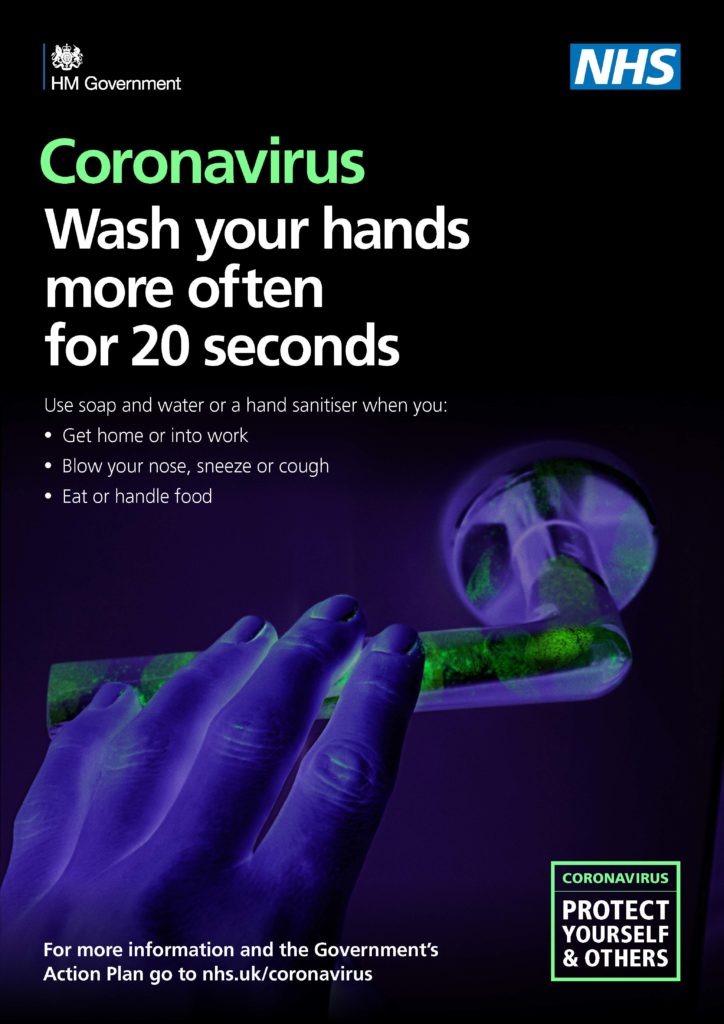Washing hands for 20 seconds is central to the expanded public awareness campaign to prevent and slow the spread of coronavirus
This phase of the campaign focuses on the importance of washing your hands more often, especially:
- when you get to work or arrive home
- after you blow your nose, cough or sneeze
- before you eat or handle food
You should wash your hands for 20 seconds, using soap and water or hand sanitiser.
You should also cough or sneeze into tissues before binning them.
The campaign will appear in the print media, radio, online and in public places, including billboards.
It has been brought forward in response to the current global situation.
Health and Social Care Secretary Matt Hancock said:
“The UK is a world-leader in preparing for and managing disease outbreaks and I have every confidence in our nation’s ability to respond to the threat of COVID-19.
“We all have a role to play in stopping this disease and that’s what this expanded campaign is all about – making sure the public knows exactly what they should be doing to keep themselves and others safe. Washing hands regularly is the single most important thing that an individual can do.
“Public safety remains our top priority. The government and the NHS are working 24/7 to fight this virus. It’s imperative that everyone follows clinical advice by contacting NHS 111, and not going to A&E if you develop symptoms.
The first phase of the campaign began in February 2020, in response to the rising number of confirmed cases of coronavirus globally and in the UK.
On 3 March the Prime Minister published a coronavirus action plan for the UK, which sets out plans for a range of situations.
Since January, public health teams and world-leading scientists have been working continuously on the coronavirus response.
The NHS, Public Health England (PHE) and local authority public health across the country are working hard to support everyone in need of advice, testing or treatment.
The government has been working with partners across the country to provide advice to the public, travellers coming into the country and those most at risk from COVID-19.
PHE has already got the results of more than 13,000 tests, and all but 51 have been negative. Latest figures are published daily.
Expert teams are actively tracing people who have come into contact with someone who is suspected to have the virus.
Unless someone has been contacted already or has travelled to an affected area, they do not need to take further action.



